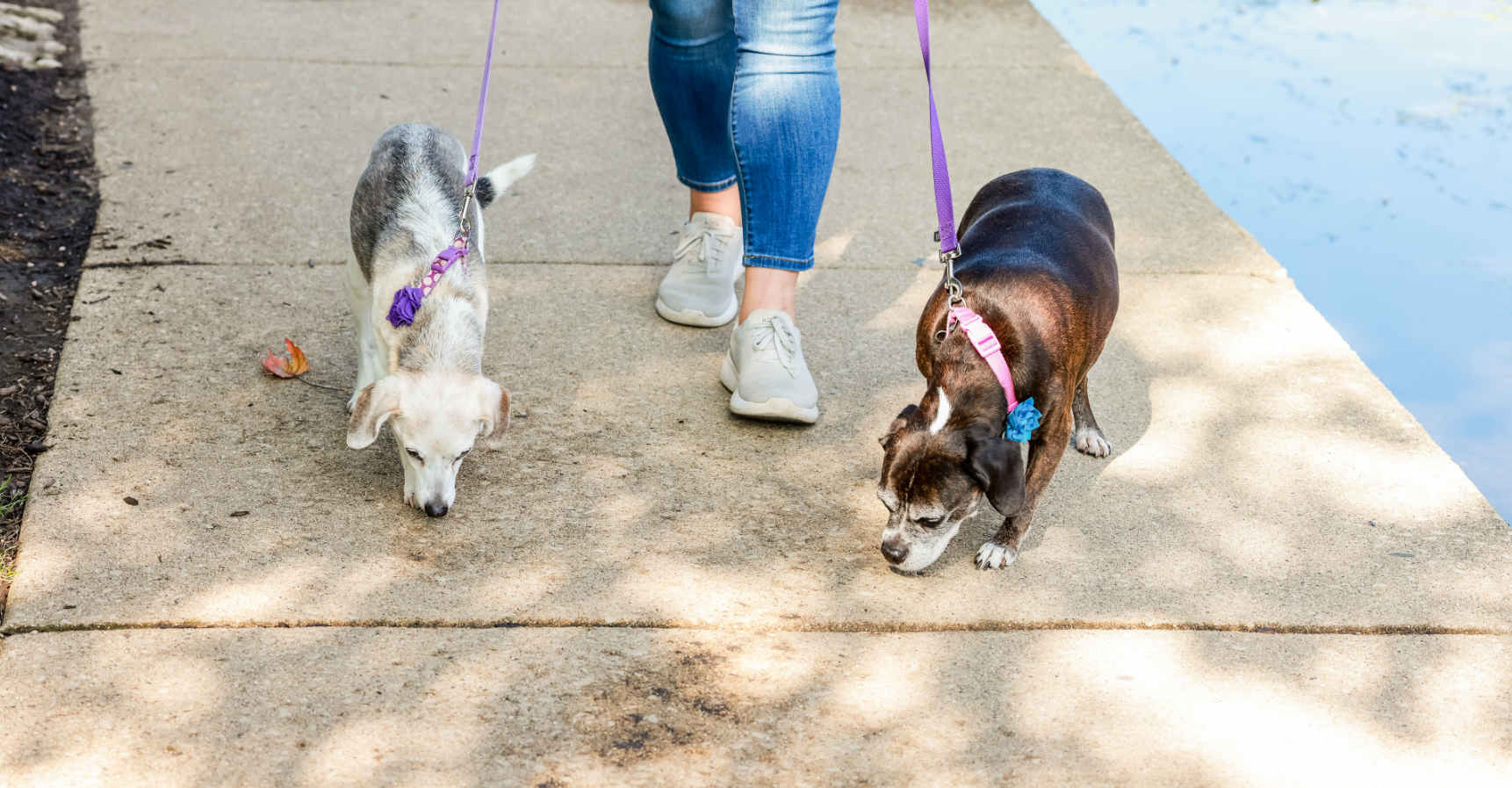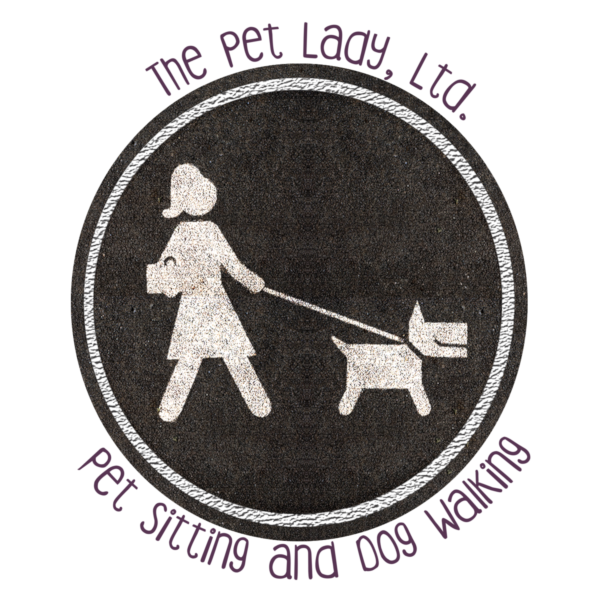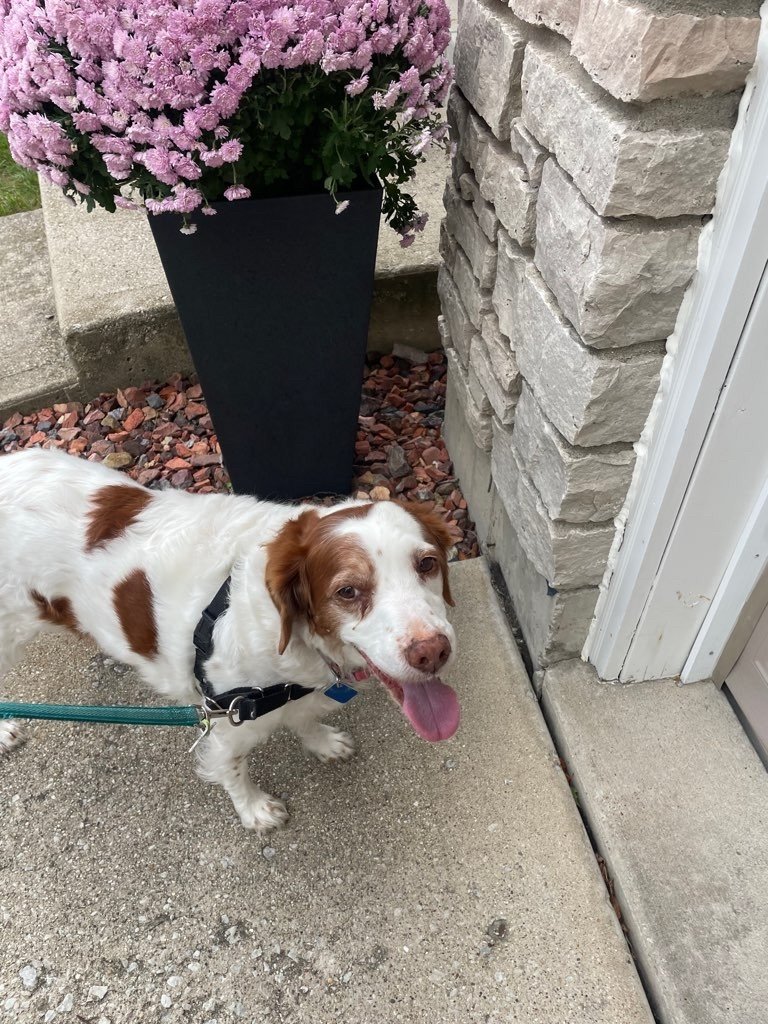
Blog
Asking For A Fur-Friend
Choosing the Best Leash for Your Dog Walks
Walking your dog is one of the best ways to bond, exercise, and reinforce skills and good behavior. However, choosing the right leash is just as important as the walk itself. The right leash ensures safety, comfort, and control, making the experience enjoyable for both you and your pup. We’ll explore the best leashes for dog walks and discuss why some options, like retractable leashes, may not be the safest choice.
Walking your dog is one of the best ways to bond, exercise, and reinforce skills and good behavior. However, choosing the right leash is just as important as the walk itself. The right leash ensures safety, comfort, and control, making the experience enjoyable for both you and your pup. We’ll explore the best leashes for dog walks and discuss why some options, like retractable leashes, may not be the safest choice.
Standard Leashes - The Reliable Choice
Standard leashes are typically made from nylon, leather, or rope and range from 4 to 6 feet in length. These leashes offer excellent control, making them ideal for daily dog walks and training.
Pros:
Provides steady control over your dog
Durable and long-lasting
Available in various materials and styles
Cons:
May not offer enough freedom for dogs who prefer to roam
Retractable Leashes - Why They Can Be Unsafe
Retractable leashes feature a thin cord that extends up to 30 feet, allowing dogs more freedom. However, they come with several risks that can make walks dangerous.
Why Retractable Leashes Are Unsafe:
Limited Control: A dog can quickly run too far ahead, making it difficult to pull them back in emergencies.
Injury Risk: The thin cord can cause burns or cuts if it wraps around fingers, legs, or even your dog’s limbs.
Entanglement Hazard: These leashes can easily get tangled around people, pets, or objects, leading to accidents.
Breakage Risk: The locking mechanism or cord may snap if a strong dog pulls suddenly.
For these reasons, many dog walkers, trainers and veterinarians recommend against using retractable leashes, especially in high traffic areas and with high energy dogs.
Training Leashes - The Best for Learning
Training leashes, also called long lines, range from 10 to 50 feet and are excellent for recall training and off-leash preparation. These are best used in controlled environments like fenced areas or open fields.
Pros:
Helps reinforce recall commands
Allows controlled freedom during training
Ideal for obedience practice
Cons:
Not suitable for everyday walks in busy areas
Requires handling experience to prevent tangling
Hands-Free Leashes - Great for Active Owners
For those who enjoy jogging or multitasking, hands-free leashes worn around the waist provide a convenient option.
Pros:
Allows hands-free movement
Ideal for running or hiking
Distributes pulling force more evenly
Cons:
Requires training to ensure the dog doesn’t pull excessively
Not ideal for strong pullers
Slip Leads - Useful but Requires Proper Use
Slip leads function as both a leash and collar, tightening when the dog pulls. They are often used for training or in shelters.
Pros:
Quick and easy to slip on and off
Helpful for training purposes
Cons:
Can cause discomfort or injury if used improperly
Not recommended for dogs prone to pulling
Choosing the Right Leash for Your Dog
The best leash depends on your dog’s size, behavior, and walking environment. Standard leashes offer reliability, while training leashes help with recall practice. Hands-free options work well for active owners, but retractable leashes pose risks that outweigh their benefits.
For safe and enjoyable walks, choose a leash that provides control, comfort, and durability. Happy walking!
At The Pet Lady, Ltd., we understand the importance of regular exercise and enrichment for your pets, even during the winter months. Our professional dog walk and adventure walk services are designed to provide safe, enjoyable, and stimulating experiences for your furry companions year-round. Contact us today to learn more about how we can support you and your pet this winter season.
Giving Your Dog the Best Walk
We all know we should be walking our dogs on a regular basis so they get the exercise they need to be healthy. I know a lot of people also exercise for themselves by walking their dog and that is a great thing and your pup thanks you too!
Originally Published on 2/9/2021
We all know we should be walking our dogs on a regular basis so they get the exercise they need to be healthy. I know a lot of people also exercise for themselves by walking their dog and that is a great thing and your pup thanks you too! While walking your dog, I believe, the walk should be for them and there are simple, easy things we can be doing to make sure you and your pup get the most out of your walks together.
Allow Your Dog to Pick Which Side They Walk On
Training your dog to walk next to you is, I think, important to a lot of dog owners. This can be a good thing, but there is no correct side your dog should walk on. It is best to let your dog pick which side is the most interesting. There may be a side with more grass or maybe better smells and markings from other dogs. It is also important for us to allow our dogs to make decisions. It is good for their emotional and mental health and honestly, allowing this will not create an unbalanced relationship with your dog.
Give Your Dog Time to Sniff
We, as humans, are not always the most patient of beings, but we should be when it comes to allowing your dog to sniff while on a walk. Sniffing is extremely enriching for dogs and is good for mental stimulation. Your pup will thank you for giving them the time they want to sniff. You can always teach a "let's go" command if you do want to move your pup along.
Use the Correct Equipment
Making sure you and your pup have the correct equipment can help your dog enjoy their walk. If your dog is a puller, refrain from using a collar for walks. This puts strain on their neck and can cause more anxiety than help slow your dog down. Harnesses are the best thing to use with pullers. It takes the strain off their neck and gives you as the owner a bit more control to slow your dog down.
Use a straight leash for walks whenever possible, especially over a retractable leash. We all love our retractables; I know I do! But these types of leashes can be dangerous to you and your dog as they do not give you as much control as a straight leash.
Your Dog May Not Want to Say Hi...
It is very important we never force our dogs to interact with any dog or person they do not want to. This can create fear and anxiety for your pup. If your dog does want to say hi, and you and the other owner are okay with it, then go for it! Some dogs will only want to say a quick hi before moving on, while others may want to spend more time meeting a new friend. Pay attention to your dog's body language to gauge whether they have said enough hellos. Good tip is to always keep slack in your dog's leash while they are greeting another dog; any pressure on a leash, harness or collar may increase your dog's anxiety about the situation.
If you would like to learn more on this topic and get a few more tips from a pet sitter, check out Pet PawCast's Episode 4- Whose Walk Is It Anyway
As a dog parent, we know you want to give nothing but the best for your furry family member. One of the best things you can get do for your dog is to TREAT them to dog walks from The Pet Lady! If you live in Elmhurst, Villa Park, Lombard or Naperville, CLICK HERE to get started! We would love to meet your dog!




